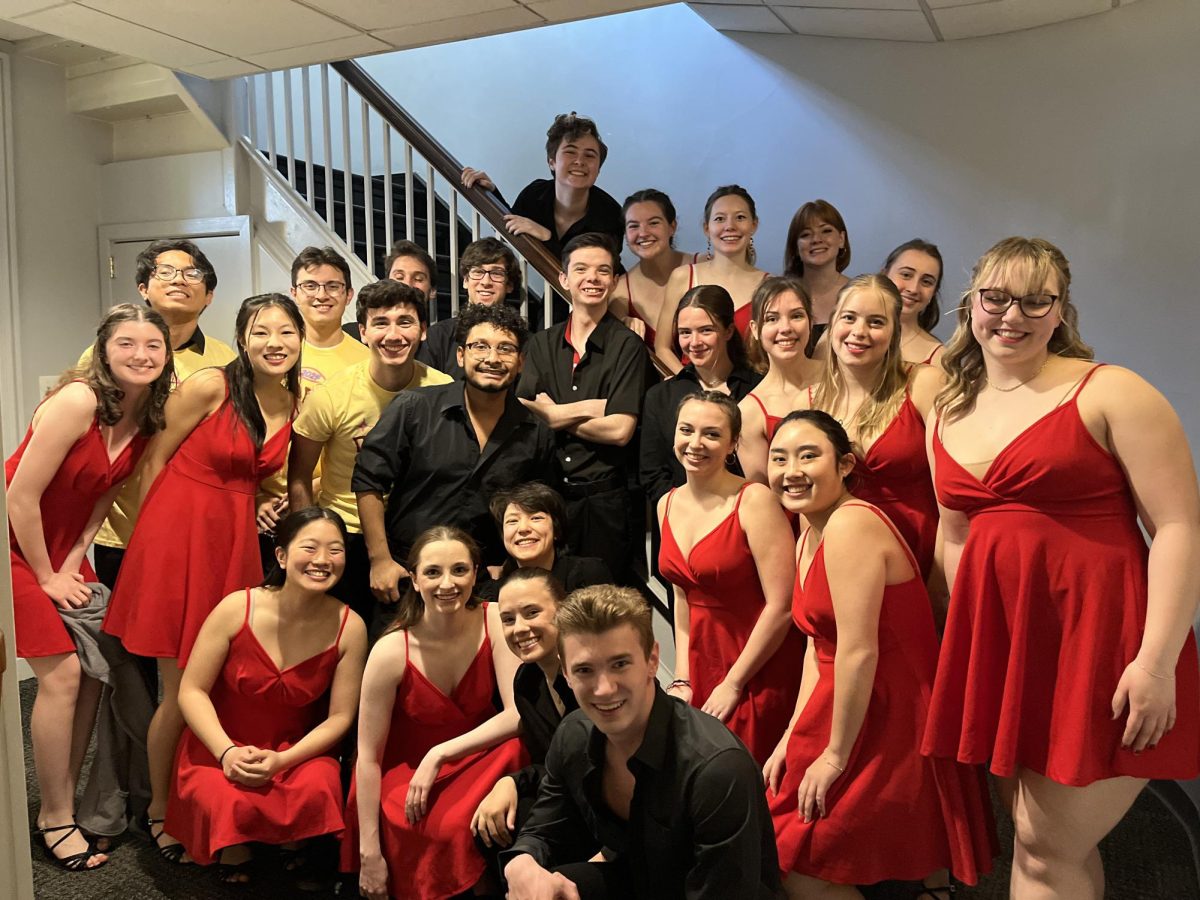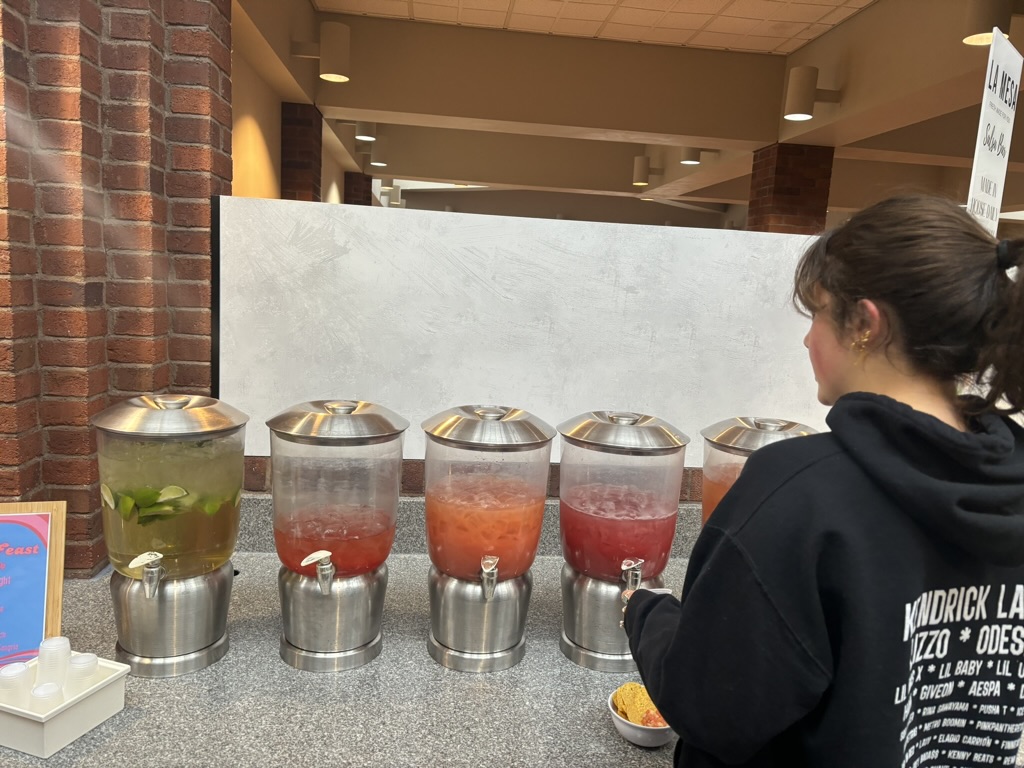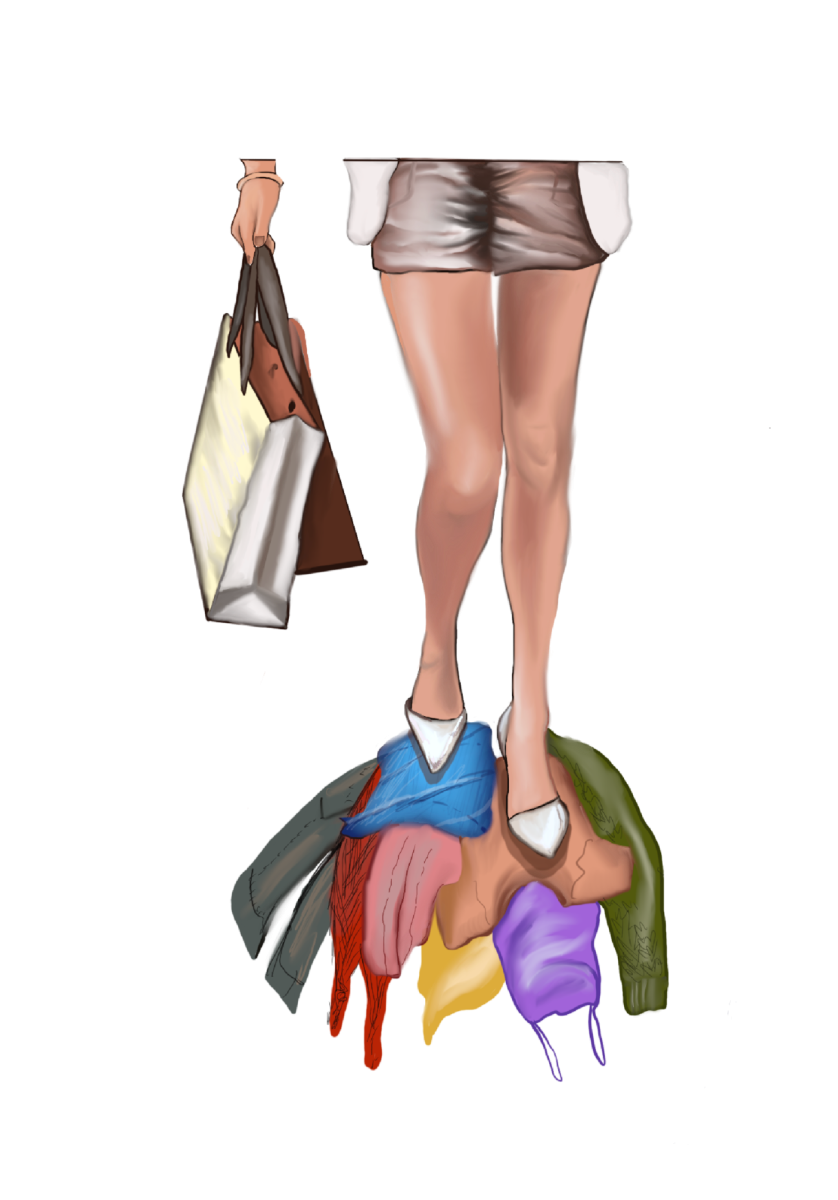Colgate University’s Office of Sustainability hosted “A Literary Walk in the Woods” on Wednesday, April 17, as part of the office’s annual 13 Days of Green celebration. The event, organized and run in collaboration with the Colgate English department, presented a forum to read, discuss and think about the too-often overlooked aspect of environmentalism and our interactions with nature.
At the event, students and professors came together to the Folger Lounge in Lathrop Hall to share poems, chapters and excerpts of literature that discussed nature or humanity’s relationship to it. In the hour that attendees spent there, over twenty different readers contributed to the dialogue with passages about nature that they found personally meaningful. The passages were both modern and classic, with authors of many different eras, from the modern poet Maggie Smith to Charlotte Brontë to William Shakespeare, all the way back to Chaucer. The readings also showed considerable diversity in their subject matter: While all focused on nature, some described its beauty, others its fury; some described nature in isolation, others illustrated our relationship to and interactions with it; some described nature in its greatest breadth, others highlighted a single element of it. Together, the readings presented an opportunity for all present to reflect individually and collectively on that nebulous concept that we have come to call nature.
Senior MacKenzie Lahren, an intern at the Office of Sustainability, described her hopes that the time spent reading and thinking together at the event could benefit readers and listeners alike, connecting this specific event with wider environmental goals.
“I hope it made [attendees] think about nature a little bit more, and the relationship that they have to it,” Lahren said. “One of the things we talk about in our office is how studies have shown that the more you can connect people with [the environment], the more they want to conserve it.”
During the event, senior Rachel Sita read an original poem that she had composed in the fall in the middle of a rainstorm. Commenting on the event afterward, she mentioned her belief that the event provided a forum for community-building as well as connection to our environment.
“The theme of nature was a great jumping-off point [for conversation] because everyone has a connection to nature, in some way,” Sita said. “It’s great to hear in what places people find that connection.”
Senior Dylan Shi also appreciated the community aspect of the event and the manner in which it enhanced the philosophical reflection on nature and the environment.
“There are so many different ways that you can talk about nature,” Shi said. “Seeing everyone bring their own voice and their own style to this topic was really cool.”
Furthering those thoughts, Shi voiced his support for events like this “Literary Walk in the Woods” that brought together people from different disciplines and put them in conversation with one another.
“It would be cool to see other events follow this lead and combine certain not-so-directly-related fields [with] the field of sustainability,” Shi said.
Modern environmental science may seem very different from old-fashioned transcendentalist prose or archaic romantic poetry, but as Shi and Lahren discussed, the complex relationship between humanity and nature is as old and multi-faceted as human civilization itself.
Associate Professor of English Ben Child, during his introductory speech on the event, cited an observation by writer Raymond Williams that “nature” may be the most complicated word in the English language. The incredible variety of passages that accompanied those who attended this “Literary Walk in the Woods” testify to Williams’ claim, showing just a few of the ways in which we at Colgate and we as a species have come to ponder our interaction with the world around us, reflecting on not only our impact on nature, but also its impact on us. After all, for us to truly combat climate change, pollution and the debilitation of the environment that humanity has caused and continues to cause, we must first step out of our estrangement with nature and into the literary, scientific or literal woods.
For more information on environmental and natural matters, Colgate community members can consult with the Office of Sustainability, the department of environmental science or even with the nearest book or corpse of trees.
















